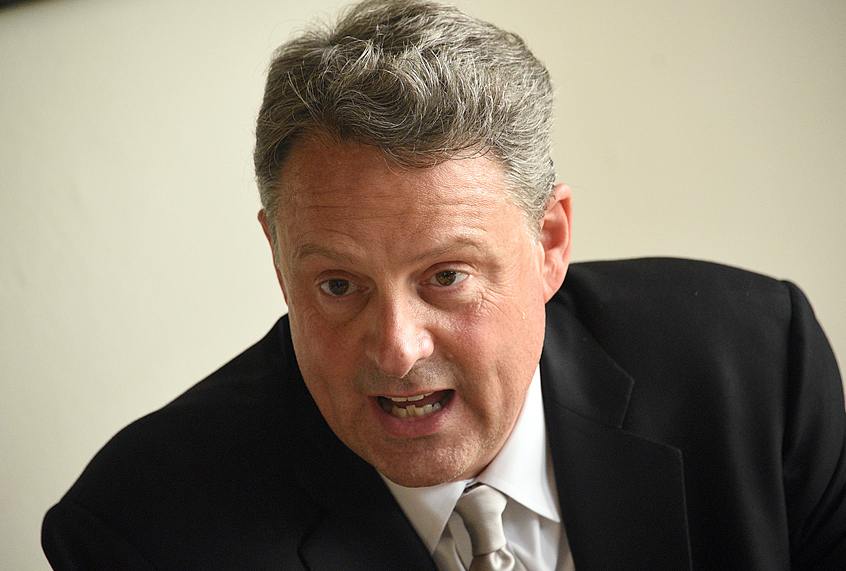The former U.S. ambassador to Panama just likened President Donald Trump to a “velociraptor” who destroys any obstacles in his path.
“In private, he is exactly like he is on TV, except that he doesn’t curse in public,” John D. Feeley told the New Yorker. “He’s like a velociraptor. He has to be boss, and if you don’t show him deference he kills you.”
Former Marine Corps helicopter pilot and career diplomat John D. Feeley announced his resignation from his diplomatic post earlier this year, saying he could no longer serve under the Trump administration. In an op-ed for the Washington Post, titled “Why I Could No Longer Serve This President,” Feeley explained that Trump had “warped and betrayed” what he considered as “the traditional core values of the United States.”
He wrote, “America is undoubtedly less welcome in the world today.”
Discussing the president’s leadership style in a new interview with the New Yorker, Feeley similarly expressed that he was troubled that the country was taking up an attitude that was increasingly detrimental to diplomacy. “If we do that,” he told the New Yorker, “my experience and my worldview is that we will become weaker and less prosperous.”
Feeley said that in his first meeting with Trump, in June 2017, the president asked him: “So tell me—what do we get from Panama? What’s in it for us?”
At an Organization of American States event in 2013, Secretary of State John Kerry had vowed that the U.S. would end its interventionism in Latin America. “The end of the Monroe Doctrine is over,” Kerry said. But early this year at an appearance in Texas, Rex Tillerson, Trump’s former state department head, sharply contrasted Kerry, calling the Monroe Doctrine “a success.”
Tillerson’s rhetoric was not met with enthusiasm in the region, Feeley indicated. He said, “Latins believe that Trump and his senior officials have no real interest in the region, beyond baiting Mexico and tightening the screws on Cuba and Venezuela.” Since Trump’s election, “we’ve taken a step back in tone. We tried to get Kerry to bury the Monroe Doctrine. But now, all of a sudden, it’s back,” he added.
It was not just the president’s policies that troubled him, however. In the Post, Feeley wrote, “My values were not his values.” Over time, Feeley said he felt that he could no longer serve in the administration. He said, “as time went on, I thought to myself, Dude, there’s only so long you can skate along with that.”
He resigned in January.
“As a junior foreign service officer, I signed an oath to serve faithfully the president and his administration in an apolitical fashion, even when I might not agree with certain policies,” Feeley wrote in his resignation letter. “My instructors made clear that if I believed I could not do that, I would be honor bound to resign. That time has come.”


